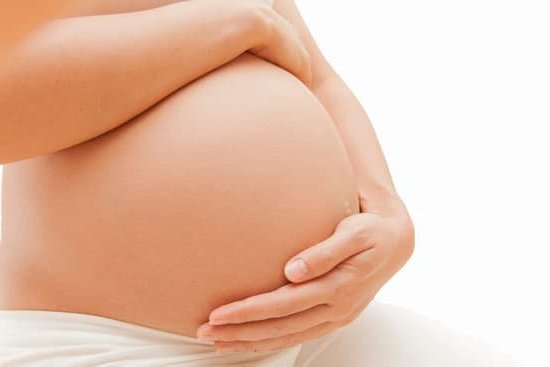Inadequate nutrition during pregnancy can lead to various complications, including infections that can harm both the mother and the developing fetus. This article aims to shed light on the link between nutrition deficiencies and infections during pregnancy. We will explore the common nutrient deficiencies in pregnant women, their impact on the immune system, and how they may increase the risk of infections.
Pregnancy is a critical period that demands careful attention to nutritional intake since an expectant mother needs to support her own health as well as that of her growing baby. The deficiency of essential nutrients such as iron, folic acid, vitamin D, and B12 can have far-reaching consequences, particularly when it comes to the body’s ability to fight off infections. Understanding these nutritional needs and their effects is crucial for ensuring a healthy pregnancy.
This section will provide an overview of the importance of proper nutrition during pregnancy and its role in preventing infections caused by nutrition deficiencies. By delving into this topic, we hope to equip expecting mothers with knowledge that can help them make informed choices about their diet and supplementation during this critical period.
Common Nutrition Deficiencies in Pregnancy
During pregnancy, maintaining proper nutrition is essential for the health of both the mother and the developing baby. However, certain nutrients are particularly crucial for a healthy pregnancy, including iron, folic acid, vitamin D, and B12. These nutrients play vital roles in supporting fetal growth and development, as well as ensuring the overall well-being of the expectant mother.
Iron Deficiency
Iron is an essential nutrient during pregnancy as it is needed to produce hemoglobin, which carries oxygen to the cells in the body. A lack of iron can lead to anemia, which increases the risk of preterm delivery and low birth weight. Pregnant women need almost double the amount of iron compared to non-pregnant women to support the increased blood volume and ensure proper oxygen supply to both themselves and their developing baby.
Folic Acid Deficiency
Folic acid is crucial in preventing neural tube defects such as spina bifida in newborns. It also plays a role in preventing cleft lip and cleft palate. Pregnant women require higher amounts of folic acid to support rapid cell division during fetal development. Insufficient folic acid intake could lead to serious birth defects and other pregnancy complications.
Vitamin D and B12 Deficiencies
Vitamin D is necessary for calcium absorption and bone development while B12 is important for nerve function and DNA production. Deficiencies in these nutrients can lead to increased risks of preeclampsia, gestational diabetes, preterm birth, and other complications that can impact both maternal and infant health. Thus, maintaining adequate levels of these nutrients during pregnancy is critical for a healthy outcome for both mother and child.
Given
Impact of Nutrition Deficiencies on the Immune System During Pregnancy
During pregnancy, a woman’s body goes through numerous changes and increased demands for nutrients to support the growth and development of the baby. Proper nutrition is crucial during this time as it plays a significant role in maintaining a healthy immune system. Nutrition deficiencies during pregnancy can have a direct impact on the immune system, leaving both the mother and the developing baby more susceptible to infections.
Iron, folic acid, vitamin D, and B12 are some of the most common nutrient deficiencies observed in pregnant women. These deficiencies can compromise the immune response, making it difficult for the body to fight off infections. For example, iron deficiency can affect the production of white blood cells, which are essential for fighting off pathogens. Similarly, folic acid and vitamin D play key roles in immune function and their deficiency can lead to impaired immune responses.
Adequate nutrition is essential for supporting the complex changes that occur in a pregnant woman’s body. Without proper nutrition, the immune system may become weakened, increasing susceptibility to infections that can have detrimental effects on both the mother and the baby. Toxoplasmosis, Listeriosis, and Bacterial Vaginosis are specific infections related to nutrition deficiencies during pregnancy that can pose serious health risks for both the mother and baby if left untreated.
| Nutrition Deficiency | Impact on Immune System |
|---|---|
| Iron | Affects production of white blood cells |
| Folic Acid | Impairs immune response |
| Vitamin D | Plays key role in immune function |
| B12 | Essential for red blood cell production and overall immunity |
How Nutrition Deficiencies Can Lead to Increased Risk of Infections
During pregnancy, a woman’s body undergoes numerous changes to accommodate the growth and development of the fetus. Proper nutrition during this time is crucial for both the mother and the baby. When essential nutrients such as iron, folic acid, vitamin D, and B12 are lacking, it can impact the immune system, making pregnant women more susceptible to infections.
Iron deficiency in pregnancy has been linked to an increased risk of developing infections such as bacterial vaginosis. This condition occurs when there is an imbalance of bacteria in the vagina, leading to symptoms like abnormal discharge and discomfort.
Folic acid deficiency is associated with a higher risk of toxoplasmosis, caused by a parasite found in undercooked meat or contaminated soil. Additionally, a lack of vitamin D has been linked to an increased risk of listeriosis, a serious infection caused by consuming food contaminated with the bacteria Listeria monocytogenes.
It is important for pregnant women to be aware of these potential risks and take steps to ensure they are getting adequate nutrition through their diet and supplements. By addressing any deficiencies early on through proper prenatal care and education, women can reduce their risk of developing infections that may harm both their health and that of their unborn child.
| Nutrition Deficiency | Associated Infection |
|---|---|
| Iron | Bacterial Vaginosis |
| Folic Acid | Toxoplasmosis |
| Vitamin D | Listeriosis |
Specific Infections Caused by Nutrition Deficiencies in Pregnancy
During pregnancy, nutrition plays a crucial role in not only supporting the growth and development of the fetus but also in maintaining the overall health and well-being of the mother. However, inadequate nutrition can lead to specific infections which can pose serious risks to both the mother and the developing baby. In this section, we will explore three specific infections caused by nutrition deficiencies in pregnancy: Toxoplasmosis, Listeriosis, and Bacterial Vaginosis.
Toxoplasmosis
Toxoplasmosis is an infection caused by the Toxoplasma gondii parasite, which is commonly found in contaminated soil or infected cat feces. Pregnant women with a deficiency in iron and folic acid are at a higher risk of contracting toxoplasmosis. The infection can be transmitted to the fetus and result in severe complications such as brain damage, vision loss, and developmental issues.
Listeriosis
Listeriosis is caused by consuming food contaminated with the bacterium Listeria monocytogenes. Pregnant women with inadequate intake of Vitamin D and B12 may be more susceptible to this infection. Listeriosis can lead to miscarriage, stillbirth, premature delivery, or life-threatening infections in newborns. It is essential for pregnant women to avoid certain foods such as unpasteurized dairy products and deli meats to prevent listeriosis.
Bacterial Vaginosis
Bacterial vaginosis (BV) is an imbalance of bacteria in the vagina that can lead to complications during pregnancy such as premature birth and low birth weight. A deficiency of Vitamin D may increase a woman’s risk of developing BV during pregnancy. Ensuring adequate Vitamin D levels through diet and supplements can help reduce the risk of bacterial vaginosis.
Understanding how these specific infections are linked to nutritional deficiencies highlights the critical importance of maintaining proper nutrition during pregnancy for both maternal health and fetal development. By addressing these deficiencies through dietary recommendations and supplements, expectant mothers can significantly lower their risk of acquiring these infections and ensure a healthier pregnancy outcome.
Symptoms and Risks of Each Infection
During pregnancy, nutrition deficiencies can lead to an increased risk of infections, some of which can have serious consequences for both the mother and the developing fetus. The following are specific infections caused by nutrition deficiencies in pregnancy:
1. Toxoplasmosis: This infection is caused by the Toxoplasma gondii parasite, which can be found in undercooked or raw meat, unwashed fruits and vegetables, and cat feces. Symptoms of toxoplasmosis include flu-like symptoms such as muscle aches and pains, swollen lymph nodes, and fatigue. In severe cases, it can lead to miscarriage or serious health problems in the baby.
2. Listeriosis: Listeria monocytogenes bacteria can be found in contaminated food such as unpasteurized dairy products and deli meats. Pregnant women with listeriosis may experience fever, muscle aches, nausea, and diarrhea. Listeriosis can result in stillbirth, premature delivery, or life-threatening infections in the newborn.
3. Bacterial Vaginosis: A common vaginal infection during pregnancy that is linked to a deficiency in folic acid and other micronutrients. It often presents with unusual discharge from the vagina that has a strong odor and may be accompanied by itching or irritation. Bacterial vaginosis has been associated with preterm birth and low birth weight.
It is important for pregnant women to be aware of these infections and their associated risks so that they can take necessary precautions to prevent them through proper nutrition and hygiene practices which would significantly reduce any chances of contracting these illnesses during pregnancy.
Preventing Infections Caused by Nutrition Deficiencies
During pregnancy, it is crucial to pay attention to proper nutrition to ensure the health and well-being of both the mother and the developing baby. Inadequate intake of essential nutrients can lead to various deficiencies, which in turn can compromise the immune system, making pregnant women more susceptible to infections. One such infection caused by nutrition deficiency in pregnancy is toxoplasmosis.
Toxoplasmosis is a parasitic infection that can be contracted by consuming contaminated food or water, or through contact with infected soil or cat feces. A deficiency in folic acid and vitamin D has been linked to an increased risk of toxoplasmosis during pregnancy.
This infection can have serious consequences for the fetus, including neurological damage and vision impairment. Therefore, it is imperative for pregnant women to ensure they are getting enough folic acid and vitamin D through their diet or supplements.
Listeriosis is another infection that can be caused by nutrition deficiencies during pregnancy. This bacterial infection is often associated with consuming contaminated foods such as unpasteurized dairy products, deli meats, and certain types of cheese. An inadequate intake of iron and vitamin B12 has been shown to increase the risk of listeriosis in pregnant women. Listeriosis can result in severe complications for both the mother and the baby, including miscarriage, premature birth, and life-threatening infections.
Bacterial vaginosis is a common vaginal infection that has also been linked to nutrition deficiencies during pregnancy. A lack of iron and vitamin D has been identified as potential risk factors for bacterial vaginosis. This condition can lead to complications such as preterm birth and low birth weight. Therefore, maintaining adequate levels of these nutrients through a balanced diet or supplementation is crucial for preventing bacterial vaginosis during pregnancy.
Conclusion
In conclusion, it is clear that proper nutrition plays a crucial role in preventing infections during pregnancy. The impact of nutrition deficiencies on the immune system can lead to an increased risk of infections such as toxoplasmosis, listeriosis, and bacterial vaginosis. These infections can have serious implications for both the mother and the developing fetus, making it essential for pregnant women to pay close attention to their dietary intake.
Pregnant women commonly experience deficiencies in key nutrients such as iron, folic acid, vitamin D, and B12, which can compromise their immune function. This makes them more susceptible to certain infections that can be harmful during pregnancy. By ensuring that they meet their nutritional needs through a balanced diet and appropriate supplementation, expectant mothers can significantly reduce their risk of contracting these infections.
It is important for healthcare providers to educate pregnant women about the importance of proper nutrition in preventing infections. By offering dietary recommendations and guidance on taking supplements, healthcare professionals can help expectant mothers make informed choices that support their overall health and the well-being of their babies. Ultimately, prioritizing good nutrition during pregnancy is essential for reducing the risk of infection and promoting a healthy outcome for both mother and child.
Frequently Asked Questions
What Are the Effects of Nutritional Deficiency During Pregnancy?
Nutritional deficiency during pregnancy can have serious effects on both the mother and the developing baby. It can increase the risk of complications such as preeclampsia, gestational diabetes, premature birth, low birth weight, and even birth defects.
Maternal malnutrition can also lead to long-term health issues for the child, such as an increased risk of chronic diseases like diabetes and heart disease.
What Disease Is Caused by Nutritional Deficiency?
One of the most well-known diseases caused by nutritional deficiency is scurvy, which is caused by a lack of vitamin C. This condition can lead to symptoms such as fatigue, swollen gums, joint pain, and slow wound healing. In severe cases, scurvy can be life-threatening.
What Are the Most Common Nutrient Deficiencies in Pregnancy?
The most common nutrient deficiencies in pregnancy include iron, folate (folic acid), calcium, and vitamin D. Iron deficiency anemia is particularly common among pregnant women and can lead to fatigue, weakness, and an increased risk of complications during childbirth.
Folate deficiency is associated with an increased risk of neural tube defects in the developing fetus, while calcium and vitamin D are important for bone health and development.

Welcome to my fertility blog. This is a space where I will be sharing my experiences as I navigate through the world of fertility treatments, as well as provide information and resources about fertility and pregnancy.





